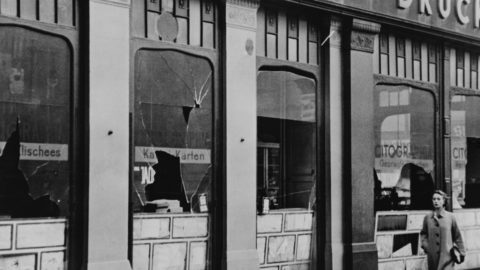The Scouts & Horley

This month, millions of young people across the UK will be joining a Scout group, to coincide with this, RH History Uncovered looks back on the long and eventful life of the founder of the Scouts and Girl Guides, and the first Chief Scout, Lord Robert Baden-Powell who once called the Horley area his home.
Born in London on February 22 1857, Robert Stephenson Smyth Baden-Powell was known as Stephe, pronounced Stevie in honour of his Godfather, Robert Stephenson, the civil engineer. Baden-Powell’s father, Rev Baden-Powell, Professor of Geometry at Oxford, died when Baden-Powell was just three years-old and he would go on to be raised by his mother who has been described as a strong woman.
Baden-Powell attended Rose Hill School in Tunbridge Wells before being awarded a scholarship to Charterhouse where he played the piano and violin, excelled in art, and enjoyed acting. His holidays were spent on yachting or canoeing expeditions. His first introduction to skills associated with scouting was through cooking game while avoiding teachers in woodland which was strictly out-of-bounds.
He went on to serve in the military in India, Afghanistan and Southern Africa. Before and during the Boer War he held the role of chief staff officer during the British campaign in Matabeleland, Colonel of the Irregular Horse, South Africa, and Lieutenant Colonel of the 5th Dragoon Guards, he fought in defence of Mafeking in 1899. He was knighted in 1909 before retiring from active military services a year later.
For a two year period during the First World War from 1916 to 1918 Baden-Powell lived in the Horley area at Little Mynthurst in Smalls Hill Road in Norwood Hill, near to Charlwood. The town of Horley and the surrounding area remained close to Baden-Powell’s heart, when he left England for Kenya in 1938, he gifted the Horley District a special Malayan wicker basket and autographed photograph of himself.
The Boy Scout Movement was founded by Baden-Powell on August 1 1907 on Brownsea Island with a demonstration camp. The fledgling organisation was approved and encouraged by the monarch of the time, King Edward VIII. In 1908 Baden-Powell published his famed Scouting for Boys book before in 1910 he helped his sister, Agnes, found the Girl Guides.
At the fifth World Scout Jamboree in 1937, Baden-Powell retired from public Scouting life, the 22 February each year is continually commemorated as the joint birthday of Baden-Powell and his wife, Olave Baden-Powell. The day is marked as Founder’s Day by Scouts and Thinking Day by Guides worldwide to remember the contribution of the organisation’s chief scout and chief guide.
Baden-Powell died in 1941 and is buried in Nyeri, Kenya – his gravestone bears a circle with a dot in the centre – , the trail sign for going home, or I have gone home. The Kenyan government has declared the grave a national monument. Baden-Powell’s memory lives on in the Scouts, in 2002 he was named 13th in the BBC’s list of Greatest Britons, and in 2007, Nepal renamed Urkema Peak to Baden-Powell Peak.


